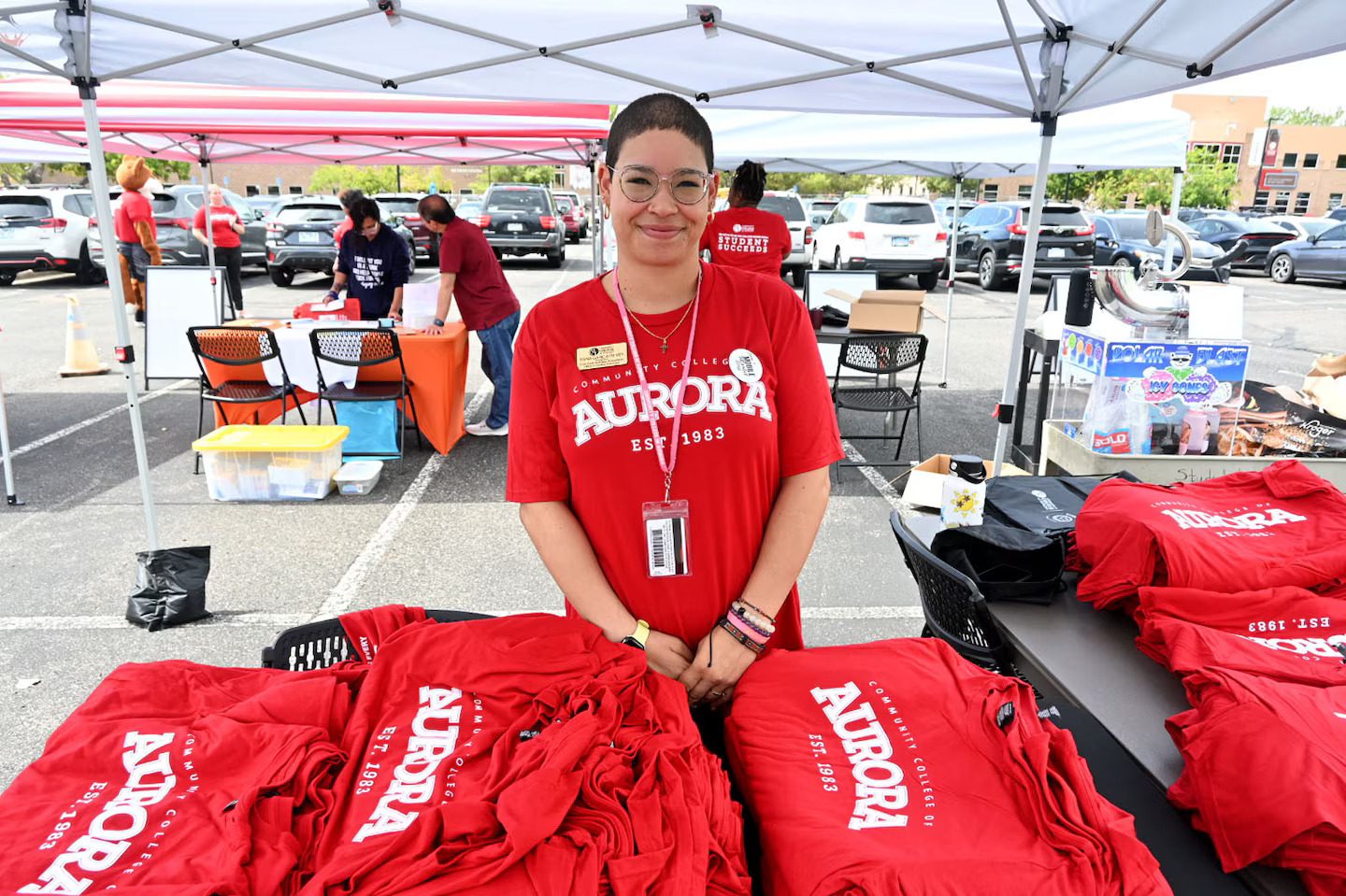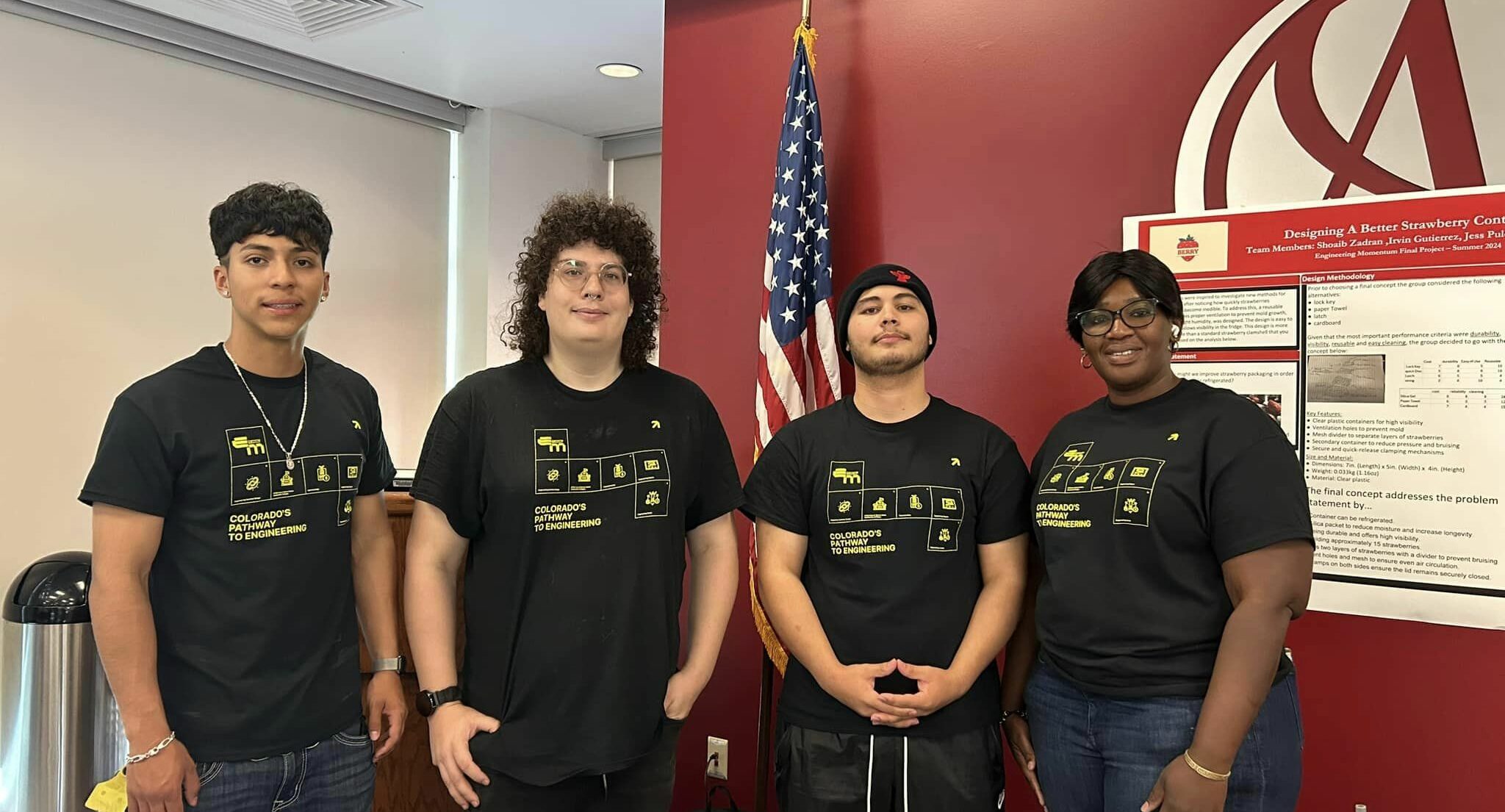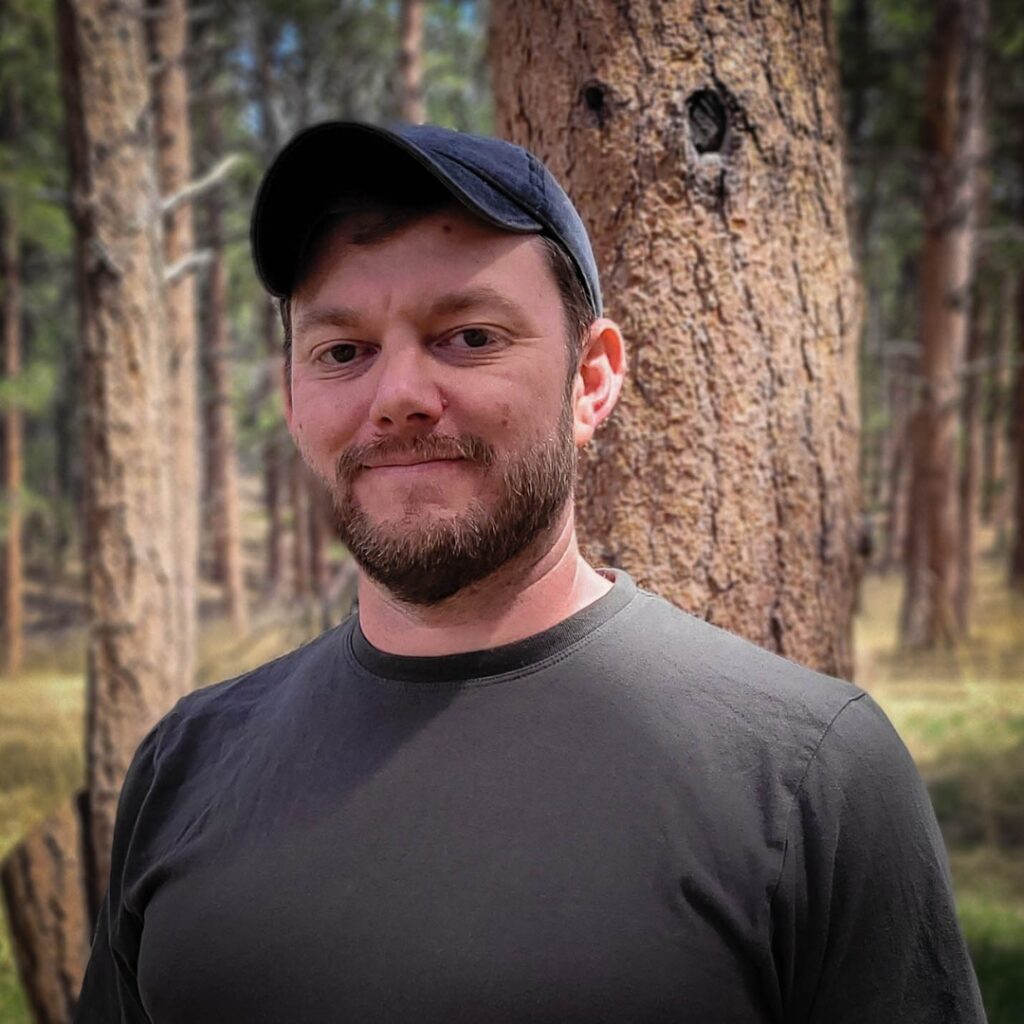
When construction work dried up during the COVID-19 pandemic, Jay Crick turned to Pikes Peak State College to get his career back on track.
Now a community college graduate and a full-time information technology technician, he’s certainly found his groove.
“I was honestly shocked by how much grants and scholarships covered for both tuition and other expenses,” he said. “My life has improved in measurable ways after getting my degree.”
Crick is among hundreds of community college students who have benefitted from Back to Work, a state program that provided financial and wraparound supports for adults looking to retool. After completing an associate degree in computer science, Crick landed an internship with the college’s IT office—a position he’s parlayed into a full-time job.
“I do not take these opportunities for granted,” he reflected. “I feel very fortunate to work at PPSC and to be a part of a culture focused on helping students achieve their own goals and aspirations.”
I was honestly shocked by how much grants and scholarships covered for both tuition and other expenses. My life has improved in measurable ways after getting my degree.
Coaching for Success
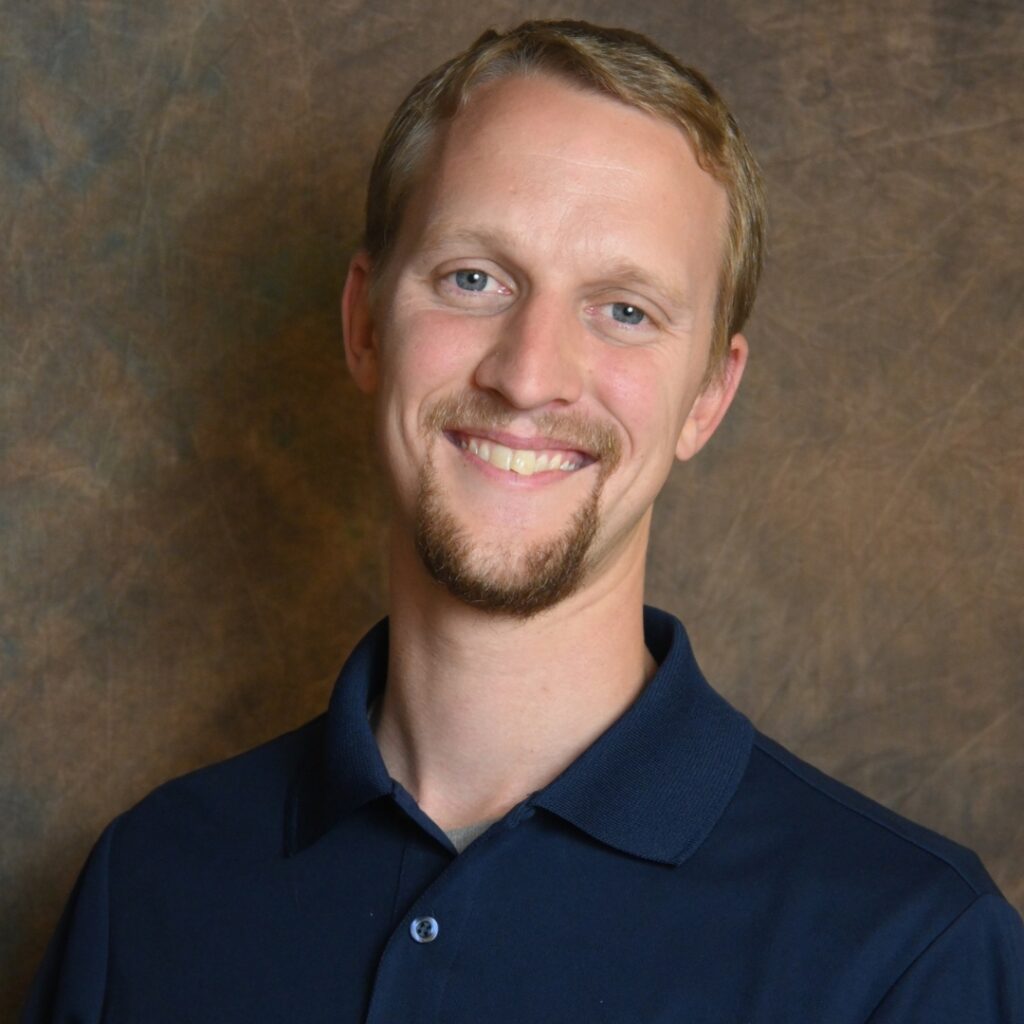
Chad Noble, a fellow community college alum and student coach at PPSC, lights up when he hears these success stories. Over the past two years, he’s helped dozens of learners like Crick successfully get back to work.
As part of the program, scholars received a $1,500 scholarship each academic term with $250 set aside to cover additional expenses like gas or textbooks. This financial support was crucial to attract adult learners whose hours were slashed or eliminated during COVID, Noble said.
“A lot of students thought they had job security or the flexibility to work remotely, and then their job would get cut,” he said. “When they started to see these scholarships, a lot were like, ‘Now I can go pursue something and basically go to school for free.’’
At an average age of 36, the group needed a lot of guidance navigating a modern college environment. Since December 2021, Noble has logged more than 550 meetings with Back to Work scholars, connecting them with financial aid, tutoring, and other campus and community resources.
“One of the most underrated things about this program is the time I could take to hear students’ stories and how I could be a lot more personable with them,” said Noble. “I was able to see how they were doing and really find niche ways to support them.”
That emphasis on coaching has yielded impressive results. To date, 387 scholars have earned 379 degrees and certificates—far outpacing the college’s initial goal of 225 credentials. Back to Work scholars also excelled in the classroom, earning an average GPA of 3.18.
As Back to Work sunsets at PPSC, Noble is transitioning to the college’s Finish What You Started program that targets students looking to re-enroll in higher education. He hopes to apply lessons learned in Back to Work to assist more adult learners.
“What I found with those students, especially if they’re older adult students, is that they need a simple, streamlined process to jump into. It can’t be confusing. It can’t be overwhelming,” he said. “What’s the most important thing that can make the most impact? Let’s do that, and let’s do that over and over again.”
Transforming Outcomes
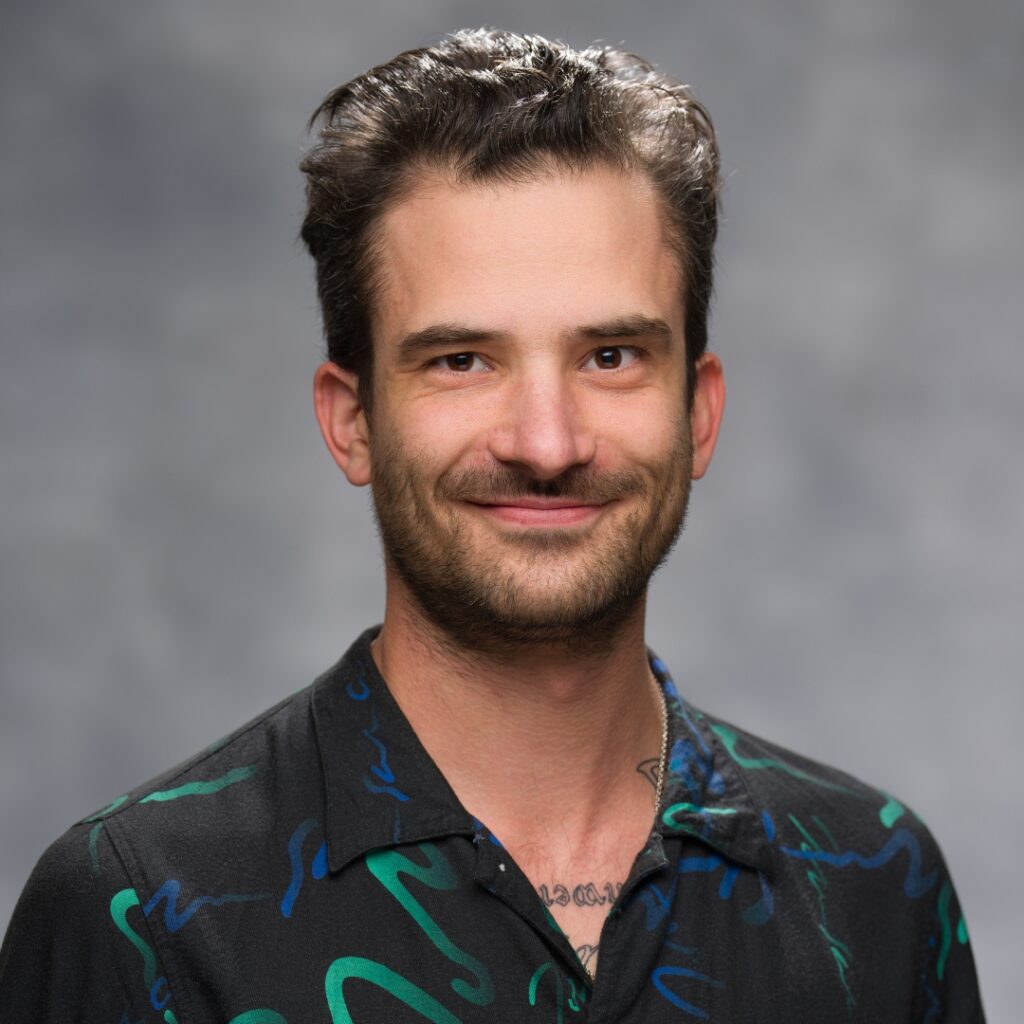
About 70 miles north, Arapahoe Community College (ACC) is celebrating the success of Back to Work, too.
Known as “Career Forward” on campus, the program is headed up by Dr. Casimir Bemski. For the last year, he’s partnered with ACC’s TRIO program to enroll as many qualifying first-generation students as possible.
“There’s quite a few learners in their 60s and their 70s, a lot of parents—people who are just really hard-working and willing to try something different,” he explained. “I reached out to each one individually through phone calls and through email. It took a lot of encouragement.”
Like Noble, Dr. Bemski met with scholars frequently to help them take full advantage of campus services. He also organizes career workshops on resume writing and interviewing to ease their transition into the job market.
“Self-advocacy and resourcing is something that’s very difficult for a college student, whether they’re 18 or 85,” he said. “That’s really the goal for me—helping bridge those gaps and make this the best experience possible.”
Dr. Bemski believes this mentorship has been essential to his students’ success. Of the 275 scholars who have gone through the program, 146 completed a degree or certificate and enjoyed higher retention rates than their peers. Through the college’s “stackable” pathways, many Career Forward participants earned two or more credentials over the course of their scholarship.
For Dr. Bemski, the data show the promise of scaffolding financial assistance with strong wraparound supports. He hopes community colleges can continue or scale the Career Forward model to fully embrace nontraditional learners.
“Programs like this are really rare,” he said. “If we are giving those students true, tangible care, it transforms what their outcomes can look like.”
